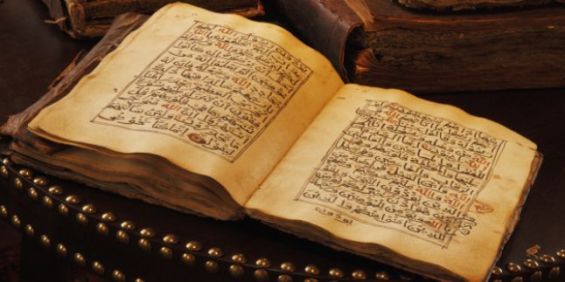In the 1730s, the first English translation of the Quran was published in England. The work, hailed by French Enlightenment writer Voltaire and purchased by America’s third President Thomas Jefferson, was conducted by George Sale, an English Orientalist and practicing solicitor.
Sale’s book was very unique, as it was the first direct English translation of the Quran from Arabic. The Englishman who mastered the Arabic language, without traveling to a Muslim country, was able to create an English version of the holy book, a version that gained fame in the West.
The English translation of the Quran was released in November 1733 in London. Sale’s translation contained several notes and an interpretation that touched upon Eastern habits, traditions, manners and laws.
A Latin translation of the Quran and an Istanbul copy
According to history professor and author Alexander Bevilacqua, Sale relied on his library and other translations to conduct his project. In fact, Sale relied heavily on a Latin translation of the holy book that was published in Counterreformation Rome. «This Latin Quran, designed for the use of Catholic missionaries, contained a wealth of previously untranslated information», wrote Belvilacqua in an opinion article published in 2014 in Aljazeera America.
In addition to the Latin translation of the Quran, Sale had a manuscript copy of the holy book that he borrowed from the Dutch Church in London. The book was copied in Istanbul during the 16th century and was donated to the London church by a Dutch trader, recalled the historian.

Belvilacqua revealed that George Sale relied almost exclusively on this copy of the Quran, citing his own examination of the manuscript in London in 2012. «This Istanbul Quran presents some rare variants of certain words, which also appear in Sale’s translation, thus proving the connection», the historian explained.
Morover, he indicated that the notes and the interpretation that accompanied Sale’s translation drew inspiration from a commentary that came with the Istanbul Quran. The latter was, according to Belvilacqua, among «the most popular in the Ottoman Empire» and «reflected the mainstream Ottoman understanding of the Quran».
Commended by Voltaire
Sale’s translation was well appreciated by the intellectual entourage in Europe. His English Quran translation was seen as his chief work by British writer Harold Lyon Thomson. In his Dictionary of National Biography (1885-1900, Volume 50), Thomson wrote that «despite a few errors, Sale's translation is remarkably accurate».
Thomson reported in his book that «Voltaire wrote in the ‘Dictionnaire Philosophique’ that ‘the learned Sale had at last enlightened us by a faithful translation of the Alcoran, and a most instructive preface to it». «Sale's preliminary discourse and notes display a remarkable acquaintance not only with the works of European writers upon mohammedanism and its history, but also with native Arab literature. The preface and notes are still reckoned among the best sources of information with regard to the faith of Islam and the mohammedan peoples», he added.
Despite the success that Sale’s work gained in Europe, the translation was seen as controversial. In a January story, the Washington Post wrote that the «1734 translation of the Quran was not produced out of special love for Islam, but rather to further Christian missionary efforts in Muslim lands».
Indeed, the translation conducted by Sale included a long introduction that made reference to the reasons behind the work. In fact, Sale wrote in his Quran translation that his work was to help Protestants understand the book and argue against it.
«It is absolutely necessary to undeceive those who, from the ignorant or unfair translations which have appeared, have entertained too favorable an opinion of the original, and also to enable us effectually to expose the imposture», wrote the British lawyer.





 chargement...
chargement...













